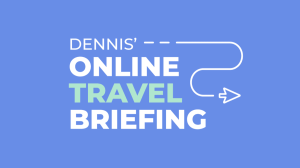Airbnb and Booking Keep the Cash Flowing
Skift Take

Dennis' Online Travel Briefing
Editor’s Note: Every Wednesday, Executive Editor and online travel rockstar Dennis Schaal will bring readers exclusive reporting and insight into the business of online travel and digital booking, and how this sector has an impact across the travel industry.Major online travel agencies feel a ton of competitive pressures, but one thing is clear: They throw off a ton of cash.
And they can use that cash wad for things like acquisitions, product development, and share repurchases.
We took at a look at free cash flow conversion for Airbnb, Booking Holdings and Expedia Group for the 12 months that ended June 30, 2023. Free cash flow conversion is a measure of how efficiently companies turn revenue into free cash flow after interest payments.
Among these three online travel agencies, Airbnb's was at the top at 31%, followed by Booking Holdings at 28%, and Expedia Group at 19%. As a much larger compan

